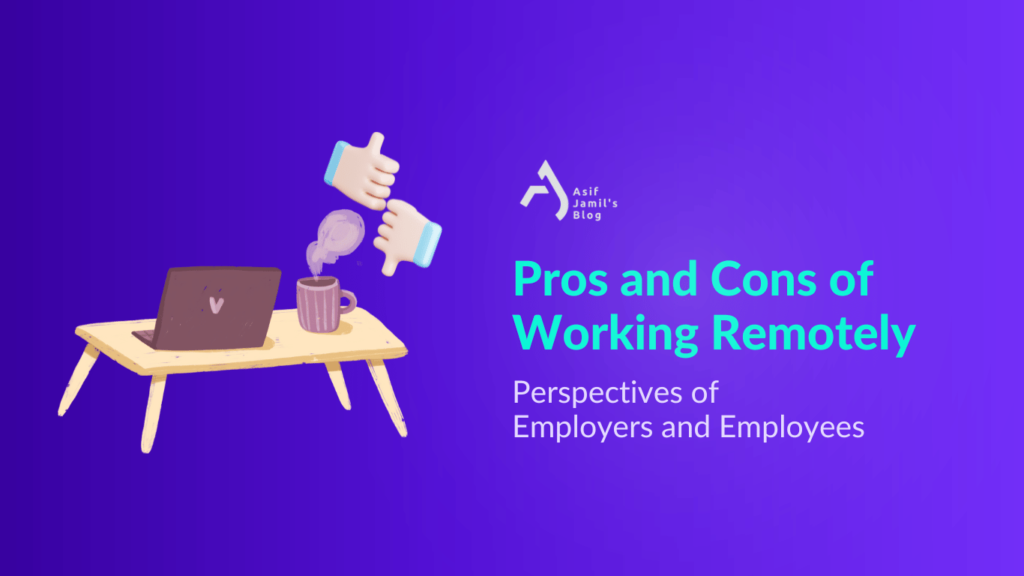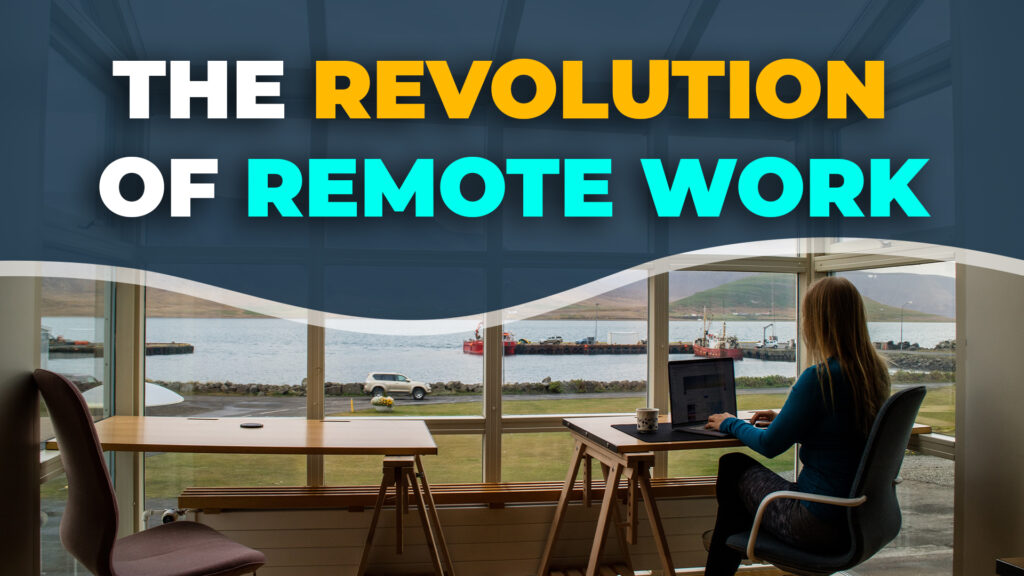Unlocking the Potential of Remote Work
Welcome to the dynamic realm of remote work, where traditional boundaries of the workplace are redefined, and flexibility becomes a guiding principle. In this guide, we unravel the intricacies of remote work, exploring its nuances, comparing it to other flexible arrangements, and addressing the burning question: Is home working as good as it sounds? Join us on a journey to understand the pros and cons, navigate personal considerations, and discover practical insights on securing remote employment. Whether you’re a seasoned remote worker or someone contemplating this shift, this article is your compass in the landscape of remote work, offering clarity, guidance, and a roadmap for success. Let’s dive in and explore the possibilities that home workingpresents in the ever-evolving landscape of modern employment.

Defining Remote Work – Unraveling the Concept
Remote work, often termed as telecommuting or telework, is a mode of employment that allows professionals to carry out their job responsibilities from a location outside the traditional office setting. Unlike work-from-home arrangements or flexible hours, home working emphasizes the freedom to choose the workspace, unbound by geographical constraints.
Location Independence
At its core, remote work is about breaking free from the constraints of a physical office, enabling individuals to perform their tasks from virtually any location.
Technology as the Enabler
Remote work is made possible by the integration of technology, leveraging tools and platforms that facilitate seamless communication and collaboration irrespective of physical distances.
Distinction from Work-from-Home
While work-from-home often implies performing tasks from a residence, home working extends beyond homes to encompass a broader range of locations, providing professionals with the flexibility to choose environments that suit their preferences and needs.
Flexibility in Working Hours
Remote work is not synonymous with a fixed 9-to-5 schedule. It embraces flexibility in working hours, allowing individuals to align their work with their most productive and convenient times.
Emphasis on Output Over Presence
In a remote work setup, the emphasis shifts from physical presence to the outcomes and contributions of the individual. Results and productivity take precedence over traditional notions of face-time in an office.
Global Connectivity
Remote work transcends geographical boundaries, fostering global connectivity. Professionals can collaborate with teams, clients, and partners worldwide, contributing to a diverse and inclusive work environment.
Understanding the essence of work from home lays the foundation for navigating its intricacies and harnessing its potential. As we delve deeper into the distinctions between remote work, work-from-home, and flexible hours, we aim to provide a comprehensive view that empowers individuals to make informed decisions about their work arrangements.

Comparative Analysis – activity-based working vs. Work From Home vs. Flexible Hours
In this section, we dissect the subtle differences between remote work, work from home (WFH), and flexible hours, offering clarity on each concept’s unique characteristics.
Remote Work: Beyond the Confines of Home
work remotely extends beyond the domestic sphere, allowing individuals to choose their workspace, whether it’s a home office, co-working space, or a scenic café. The emphasis is on location independence and a broader definition of the workplace.
Work From Home (WFH): Domestic Convenience
Work from home typically implies conducting professional tasks within the confines of one’s residence. While it provides a level of flexibility, it is more limited in scope compared to work remotely, as it anchors the individual to a single location.
Flexible Hours: Adapting the Workday
Flexible hours refer to the adaptation of traditional working hours to accommodate personal preferences. It doesn’t inherently dictate the location of work but allows individuals to tailor their daily schedule for optimal productivity and work-life balance.
Remote Work vs. WFH: Breaking the Boundaries
While both involve working from home, work remotely offers a broader spectrum, allowing professionals to choose locations beyond their residences. It encompasses a diverse range of work environments, fostering a sense of freedom and autonomy.
Remote Work vs. Flexible Hours: Beyond the Clock
distant working transcends the constraints of a fixed schedule, emphasizing location independence. In contrast, flexible hours primarily address the adaptability of daily working hours while maintaining a traditional office setup.
WFH vs. Flexible Hours: Location vs. Time Flexibility
Work from home and flexible hours primarily address the convenience of location and time, respectively. While WFH focuses on where work is conducted, flexible hours concentrate on when the work is performed.
Understanding these distinctions is pivotal for individuals contemplating or currently navigating these work arrangements. As we proceed, we’ll explore the advantages and disadvantages inherent in remote work, shedding light on the multifaceted nature of this evolving professional landscape.

Pros and Cons – Navigating the Landscape of activity-based working
As we explore the advantages and disadvantages of distant working, it’s essential to recognize that this dynamic professional model brings both opportunities and challenges to the table.
Long-Term Commitment
Remote work often fosters a stronger sense of commitment and loyalty from employees. The flexibility and autonomy it offers contribute to increased job satisfaction, reducing turnover rates.
Deep Work Opportunities
Remote work provides an environment conducive to deep work—a state of focused and uninterrupted concentration. Professionals can create optimal conditions for productivity, leading to high-quality output.
Communication Skills Enhancement:
Working remotely necessitates effective communication through digital platforms. As a result, individuals develop robust virtual communication skills, essential in today’s interconnected global workspace.
Healthier Lifestyle
Remote work allows for a more personalized approach to work-life balance. Individuals can integrate healthier habits into their daily routines, promoting physical and mental well-being.
Isolation Challenges
One of the primary drawbacks of remote work is the potential for social isolation. Lack of face-to-face interactions with colleagues can lead to feelings of loneliness and disconnection.
Responsibility for Staying on Track
Remote work requires a high level of self-discipline and personal accountability. Without the structure of a traditional office environment, individuals must proactively manage their tasks and deadlines.
Limited Immediate Team Access
Unlike in an office, remote work may limit immediate access to team members. Quick queries or impromptu discussions may need to be scheduled, potentially slowing down collaborative processes.
Understanding these pros and cons sets the stage for a balanced approach to remote work. As we proceed, we’ll delve into individual considerations, helping you assess whether remote work aligns with your personal and professional preferences.
Is Remote Work Right For Me? Assessing Personal Suitability
Remote work offers a plethora of benefits, but it’s essential to evaluate whether it aligns with your work style, preferences, and professional goals. Here’s a guide to help you determine if distant working is the right fit for you:
Self-Motivation and Discipline
Assess your ability to stay motivated and disciplined without the traditional office structure. distant working demands a proactive approach to task management and self-accountability.
Communication Preferences
Consider your communication style. If you thrive in virtual communication channels and are comfortable expressing ideas through written communication, remote work may suit you.
Work-Life Balance Prioritization
Reflect on your priorities regarding work-life balance. If having the flexibility to design your workday around personal commitments is crucial, remote work can provide the autonomy you seek.
Independence and Autonomy
Evaluate your preference for independence in decision-making and task execution. Remote work empowers individuals to work autonomously, requiring a degree of self-reliance.
Tech Proficiency
Gauge your proficiency with digital tools and technology. Remote work heavily relies on digital communication platforms and project management tools, so a comfort level with technology is advantageous.
Adaptability to Change:
Consider your adaptability to change. Remote work introduces a shift in the traditional work paradigm, and individuals who embrace change and novelty may find it more fulfilling.
Social Interaction Needs
Assess your need for social interactions. If you thrive on daily face-to-face interactions and find energy in a bustling office environment, remote work may present challenges related to social isolation.
Career Goals Alignment
Align remote work with your career goals. Evaluate whether your profession allows for remote collaboration and whether your long-term career objectives align with the opportunities presented by remote employment.
By considering these factors, you can gain insight into whether remote work aligns with your individual preferences and professional aspirations. As we progress, we’ll delve into practical strategies for finding remote job opportunities and navigating the evolving landscape of remote employment.
2 / 2

How to Actually Find a Remote Job – Practical Strategies
Securing a remote job requires a strategic approach, considering the competitive landscape and evolving job market dynamics. Here’s a practical guide on how to navigate the process and land your ideal remote position:
Identify Remote-Friendly Industries
Explore industries that inherently support remote work. Technology, marketing, design, writing, and customer service are examples of sectors with a strong remote work culture.
Leverage Remote Job Platforms
Utilize dedicated remote job platforms such as Remote OK, Flex Jobs, and We Work Remotely. These platforms curate job listings specifically for remote positions, streamlining your job search.
Optimize Online Presence
Ensure your online presence reflects your skills and experience. Update your LinkedIn profile, create a standout resume, and showcase your portfolio or relevant work samples to attract potential employers.
Networking in Virtual Spaces
Engage in virtual networking opportunities. Join professional groups on LinkedIn, attend virtual conferences, and participate in online forums relevant to your industry. Networking remains a powerful tool in the remote job search.
Skill Development for Remote Roles
Enhance skills conducive to away working. Proficiency in virtual collaboration tools, project management software, and effective written communication are valued skills in the away working landscape.
Flexibility in Job Roles
Be open to different job roles that offer remote options. Flexibility in the type of work you’re willing to undertake can broaden your job prospects.
Research Remote-Friendly Companies
Identify companies known for embracing away working. Research their work culture, policies, and employee testimonials to gauge their commitment to remote employment.

Navigating Remote Work: Key Takeaways and Insights
As we conclude our exploration of away working, it’s crucial to distill the key takeaways and insights that will empower individuals seeking to thrive in this evolving professional landscape. Let’s summarize the essential points:
Adaptability is Key
Remote work demands adaptability. Professionals should embrace change, cultivate flexibility, and be open to evolving work paradigms to succeed in the dynamic world of remote employment.
Strategic Job Searching
A strategic approach to job searching significantly influences success in securing remote positions. Leveraging dedicated remote job platforms, optimizing online presence, and networking in virtual spaces are essential strategies.
Skill Development Matters
Developing skills tailored to remote turning enhances employ ability. Proficiency in virtual collaboration tools, effective written communication, and project management are increasingly valuable in the away working landscape.
Balancing Independence and Collaboration
Remote work requires a delicate balance between independence and collaboration. Individuals should master the art of self-discipline while remaining adept at virtual communication and teamwork.
Tech Proficiency is Non-Negotiable:
Proficiency with technology is non-negotiable. distance working heavily relies on digital tools, and individuals with a strong tech aptitude are better equipped to navigate the virtual work environment.
Remote-Friendly Industries Thrive
Industries inherently supportive of remote work, such as technology, marketing, and design, continue to thrive. Job seekers should explore sectors aligned with their skills and preferences.
Networking is a Powerful Tool
Networking remains a powerful tool in the remote job search. Engaging in virtual networking opportunities and staying connected with professionals in your industry can open doors to remote employment.
Continuous Learning and Adaptation
The distance working landscape is continually evolving. Professionals should embrace a mindset of continuous learning and adaptation to stay relevant and capitalize on emerging opportunities.
As we navigate the landscape of distance working, these insights serve as a compass, guiding individuals toward success in their remote professional journey. The freedom, flexibility, and possibilities offered by distance working await those who approach it with preparedness, resilience, and a commitment to excellence.

Conclusion: Embracing the Remote Work Revolution
In conclusion, the realm of remote work presents a trans formative landscape teeming with opportunities for those ready to embrace change. The insights shared throughout this exploration underscore the importance of adaptability, strategic job searching, skill development, and a delicate balance between independence and collaboration. As technology continues to shape the future of work, proficiency in digital tools becomes a non-negotiable skill, opening avenues for professionals across various industries.
The thriving nature of distance working sectors, coupled with the power of networking and continuous learning, highlights the dynamic potential of remote work. It’s not merely a shift in location; it’s a revolution that demands a holistic approach, combining technical aptitude with a proactive mindset.
As individuals navigate the complexities of remote employment, may they find inspiration in the freedom, flexibility, and possibilities it affords. The distant working revolution is not just a trend; it’s a trans formative force reshaping the way we work, connect, and thrive in the digital age. With strategic navigation, a commitment to self-improvement, and a readiness to adapt, professionals can unlock the doors to a fulfilling and successful remote career. Embrace the distant working revolution—it’s not just a choice; it’s a journey toward a future where work knows no boundaries.
